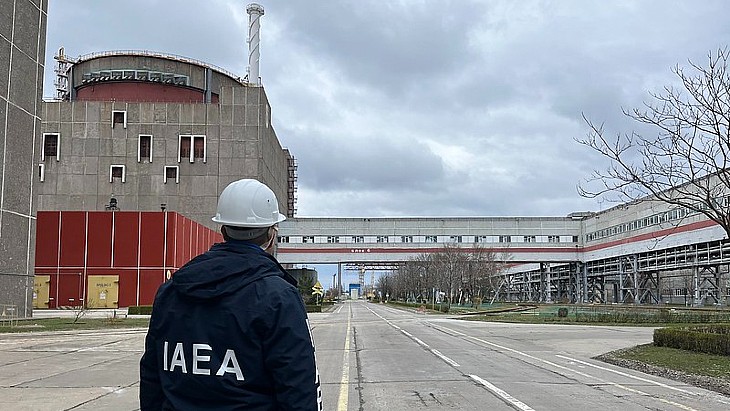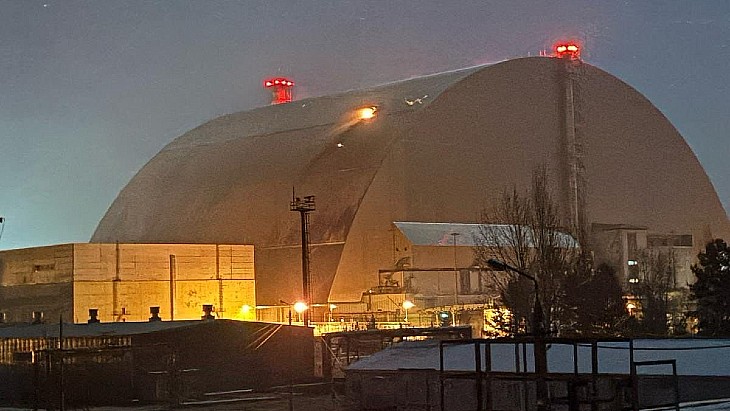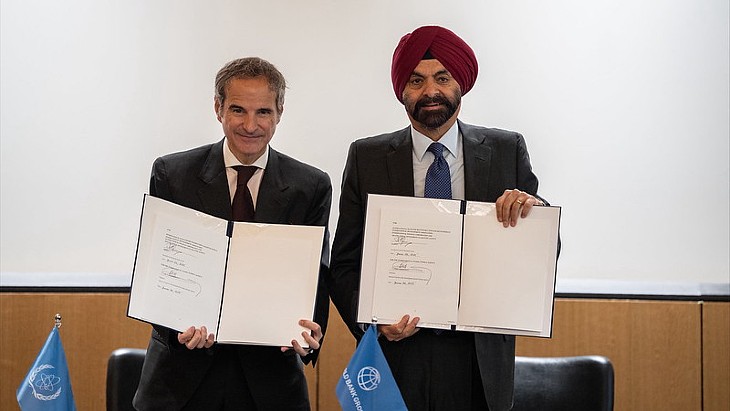IAEA warns against attacks on, or from, Zaporizhzhia nuclear power plant

In his latest update on the situation at the six-unit Zaporizhzhia nuclear power plant, which has been under Russian military control since early March 2022, Grossi said that on the question of military action targeting the plant, or being launched from it "the five concrete principles - widely supported by the members of the United Nations Security Council - are very clear".
He said that the agency's experts at the plant had heard military activity on most days "including artillery and rocket fire some distance away ... as well as small arms fire both near to and further away from the site". There had also been air-raid sirens on Wednesday and Thursday.
The IAEA was "aware of reports alleging that a training base for drone operators as well as drone launch pads have been deployed near the ZNPP's reactor unit 6 and its training centre. The IAEA experts have not seen any evidence of drones being launched, or the presence of training facilities or launching pads, within the site perimeter, but have requested access to the rooftop of a nearby laboratory building. The ZNPP has informed the IAEA team that the request is under consideration".
Since September 2022 there have been IAEA experts stationed at the facility, helping to monitor the situation and seeking to reduce the risks to safety and security at a place which is located on the frontline of Russian and Ukrainian forces.
They have carried out regular walkdowns across the site, although there have been some areas where they have had to request access a number of times before being allowed to visit. This week they have visited the two fresh fuel storage facilities, performed radiation monitoring along the site perimeter and measured the levels of the site's sprinkler ponds, which they reported to have enough water to provide cooling to the six reactors.
Another issue that the IAEA has been monitoring has been the staffing situation at the plant. The Russian operators say there are currently 5000 staff, an increase on last year but "still significantly fewer than it had before the conflict", the agency added. There are 800 open positions, and the operators have told the IAEA that staffing levels at Rosatom-operated nuclear power plants are generally "significantly lower than the corresponding staffing levels of Ukraine". The IAEA says its experts are "prevented from freely talking to main control room staff, affecting the agency's ability to independently assess the knowledge and experience of these personnel that are essential to maintaining nuclear safety at the ZNPP".
Grossi said: "We are continuing to monitor the staffing situation closely, as it is of vital importance for nuclear safety and security. For this purpose, our experts would also require an opportunity to discuss with the operators of the main control rooms, and other qualified staff."
The IAEA said that its teams at Ukraine's other nuclear power plants of Khmelnitsky, Rivne and South Ukraine, plus at Chernobyl, "reported that nuclear safety and security continues to be maintained".









..._58412.jpg)

